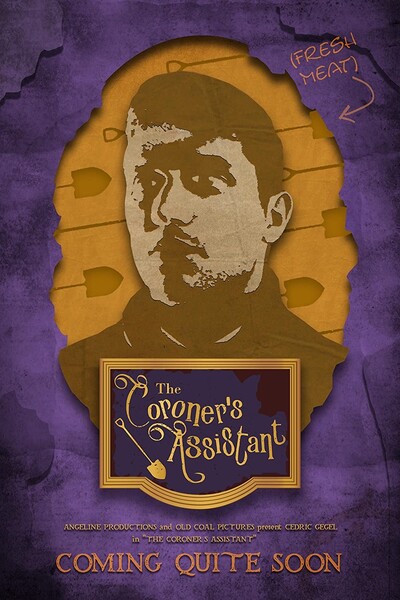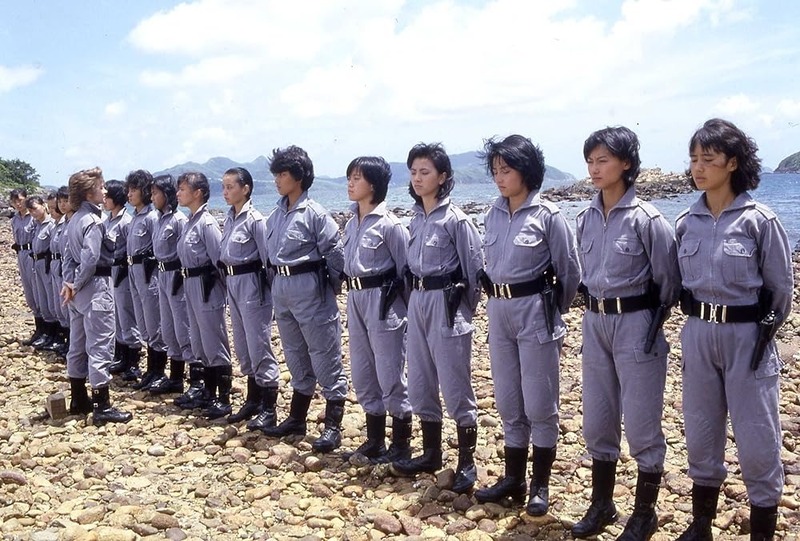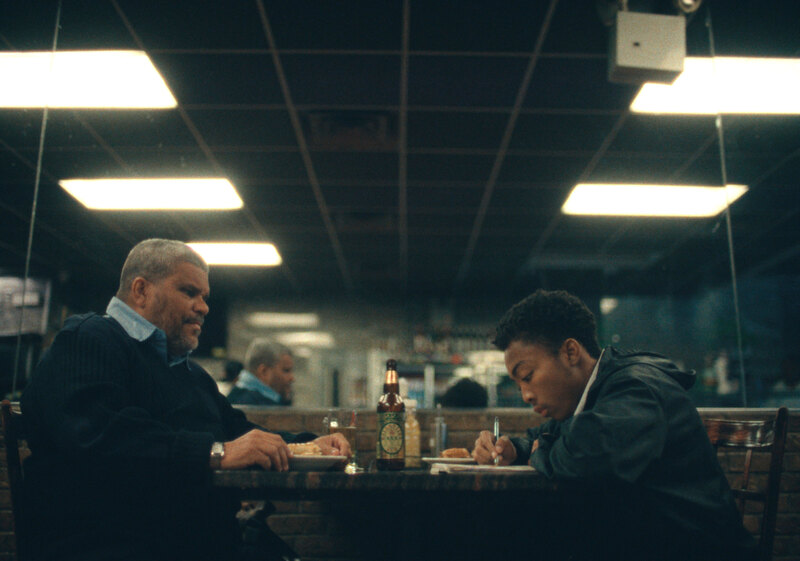
Independent Creator Makes Mark With Unique Series
WEB SERIES REVIEW
The Coroner's Assitant – The Interview
–
Genre: Comedy, History, Mystery
Year Released: 2023
Runtime: 4 x 21m episodes
Director(s): Angeline Walsh
Writer(s): Angeline Walsh
Cast: Jeremy Gladen, Cedric Gegel, Meg Martinez, Robert Branch, Giorgiana Lascu
Where To Watch: streaming now, available here www.youtube.com
RAVING REVIEW: Stepping into the shadowed alleys of Victorian London, THE CORONER'S ASSISTANT, steered by the dynamic Angeline Walsh, is a game-changer in the world of web series. Tackling a subject as grim as the trade in human remains, this series blends dark humor with a dose of historical intrigue, creating a spectacle that is as captivating as it is entertaining. With its innovative approach, the series redefines the benchmarks for independent digital storytelling.
Make sure to tune in to The Astra Awards’ TV Award ceremony (newly named by The Hollywood Creative Alliance), which will take place on January 8, 2024, in Los Angeles, California, where the winners will be announced. THE CORONER'S ASSISTANT is up for two awards. They will air globally in addition to the live stream on the official HCA YouTube Channel and KNEKT.tv, which is available to download on Roku, Android, and Apple devices.
Walsh's decision to root the series in her native Cleveland, steering clear of the glitz of Hollywood, infuses the narrative with a sense of realism and authenticity. This location lends the series a distinctive feel, grounding the storyline in reality, even though it's far removed from its actual location. Walsh’s nomination for Best Writing in a Streaming Comedy Series perfectly exemplifies the heart of the series.
In the center of this historical web series is James Rigby, portrayed by Cedric Gegel, whose performance is nothing short of remarkable. Gegel delivers a layered character, navigating the shifting tones of the series with a natural ease that resonates with viewers. His character’s unexpected descent into London's shadowy depths adds a refreshing and unexpected twist.
The casting journey, marked by twists and turns, culminates in a cast ensemble that perfectly aligns with Walsh's vision. The on-screen synergy among the cast is palpable, with each actor contributing to a richness of characters that are as complex as they are charming.
The series' costume design, orchestrated by Aimee Morgan, is a visual feast. Morgan’s dedication to historical accuracy in fashion anchors the series in its period and enhances its overall aesthetic appeal. The nod to Morgan’s work with a nomination in the Best Period Costume category at the Astra Awards is a fitting tribute to her meticulous craft.
Taking on the triple mantle of writer, director, and producer, Walsh showcases a commendable versatility. Her ability to balance these roles while keeping a tight grip on the series’ artistic vision is a testament to her skill and determination. The series is a product of her vision, executed with a rare finesse in independent filmmaking.
THE CORONER'S ASSISTANT will inspire budding filmmakers with its dual nominations at the Astra Awards’ TV Award ceremony (newly named by The Hollywood Creative Alliance). It isn't just a personal victory for Walsh; it signals the arrival of independent creators as critical players in the digital era.
THE CORONER'S ASSISTANT offers a riveting exploration of a bygone era through a modern lens. It’s a testament to the power of vision, teamwork, and the courage to challenge the status quo in storytelling. Walsh's journey with this series is inspiring, demonstrating the boundless possibilities in creativity, perseverance, and innovative thinking in independent film and web series production.
Join me for a Q&A with Writer/Director Angeline Walsh:
(CJ: Chris Jones from Overly Honest Movie Reviews, AW: Angeline Walsh)
1. **Breaking into the Industry**
CJ: Angeline, as a young writer who has successfully entered the competitive world of TV writing, what unique challenges do you face as an independent nominee, and how did you overcome them to get your work recognized at such a prestigious level?
AW: One of the most significant challenges I still face is relative anonymity. My fellow nominees are known and well-respected in our field. (I’ve watched the shows they’ve written!) It’s difficult enough to recognize yourself as a capable writer; it’s even more difficult to convince others.
I entered “The Coroner’s Assistant” into the HCA Awards (now called the Astras) with as little expectation as possible. I knew that my work would be judged against the work of industry professionals, some with decades-long experience, but my hope for my work to be seen outweighed a potential rejection (of which I’ve received plenty).
There are film projects that are given budgets of several million dollars in which the budget is misallotted or squandered on an inadequate script or poor casting. When a project has a bare-bones budget like mine did, you must be resourceful. Restrictions can force you to consider more creative problem-solving. At the end of the day, the work speaks for itself.
2. **Creative Process**
CJ: Could you share some insights into your creative process for 'The Coroner’s Assistant'? What inspired you to write this particular episode, 'The Interview,' and how does it reflect your personal style or approach to storytelling?
AW: I don’t outline. I jump headfirst into a writing project, spurred by a specific visual or piece of dialogue or conversation between characters. The first episode of “The Coroner’s Assistant” was originally conceptualized as a short film, but as soon as I began writing that first conversation between James and Oliver, and then Thomas entered (I didn’t plan on him—he just intruded), I knew that these characters were not going to be contained to a short narrative.
All my stories, whether I’m writing a script or a work of fiction, are character-centered and character-motivated. The plot is important, but a plot means nothing to me without the characters driving it. By not outlining, I allow the necessary room for the characters to come alive and develop in their own ways. I don’t force myself to write the story in a particular order, which allows the unexpected to occur. It’s a journey of constant uncertainty, surprise, and joy.
When I’ve finished a draft in this process, I return to it from the start and use that first draft as an outline for a more refined, fleshed-out story. But having that foundation of character as king later allows the spontaneous improvisations and playful moments on set that I love so much.
3. **Representation and Diversity**
CJ: Your success as a young writer from Ohio disrupts the usual Hollywood narrative. How do you think your background and perspective have influenced the content and characters of 'The Coroner’s Assistant,' and what impact do you hope it will have on the industry?
AW: As an Ohioan, I must say I’m in good company for disruption. From William Tecumseh Sherman to Annie Oakley to Thomas Edison, Ohioans have been causing trouble and starting conversations for a while.
Midwesterners are often miscategorized and dismissed, but we’re very industrious, and we have grit. Growing up in Cleveland, a city that’s in the heart of America’s Rust Belt, where winter weather lasts sometimes from October through April, and there’s a dilapidated building on every corner—a constant reminder of the booming metropolis it was at the turn of the 20th century—makes you keenly aware of how quickly things can change and how precarious beauty is. Clevelanders have witnessed our city burning (literally, in the case of our river) and being berated (we’ve literally been called “The Mistake on the Lake”), but we’re still standing. We love our city, even if others misunderstand it. There’s a definite cynicism here but a lot of hope, too. I think that’s one of the reasons I’m drawn to dark comedies and why I wrote one. You have to be able to laugh in the face of absurdities.
We need people of all kinds to make art and people to make art in all kinds of places. I don’t think it’s necessary to live in California to be a successful filmmaker. I think people should make films right where they are. It’s a great way to connect with your community and other local artists. Nothing made me love my hometown quite like making a movie in it.
4. **Future Aspirations**
CJ: With the acclaim 'The Coroner’s Assistant' is receiving, especially being the only independent and self-distributed series from YouTube in the streaming category, what are your aspirations for the future? Do you plan to continue creating independent work, or are you considering collaborations with larger studios?
AW: I’m adamant about challenging the current way we approach making films and running sets. Too many of the standards in place for film set operation are remnants of a bygone age of filmmaking, where only certain stories were allowed into the mainstream, and only certain people could tell them. Monumental changes often begin at the grassroots level, and indie filmmakers—who aren’t as restricted by the bureaucracy and expectations of studio heads—are in a unique position to establish more equitable and collaborative sets.
Maintaining creative control over each project I take on is most important to me, whether that’s on a set with a skeleton crew or a larger-scale production. I think keeping a small but efficient crew will always be something I strive for when making a film project; when a production sprawls over dozens of departments, there more’s more liability for miscommunication and disconnectedness. When everyone on set not only knows each other by name but connects on a personal level, and when they’re empowered to share ideas and challenge those that aren’t working, real collaboration happens in a way that doesn’t in a tightly controlled, hierarchical environment.
No matter where my career takes me, I never want to lose the “indie spirit” of resourcefulness, playfulness, and daring because those are things I value most in filmmaking.
5. **Advice for Aspiring Writers:**
CJ: What advice would you give aspiring writers, especially those outside the traditional Hollywood system, who dream of writing for TV or creating their series? How important is creating and distributing content independently in today’s digital age?
AW: In the studio system, screenwriters can be vulnerable to their work being run through the mill, sometimes to the extent that by the time their story gets to the screen, their words are unrecognizable. The idea of directing or producing is intimidating to a lot of writers, but I encourage every writer to consider taking a leadership role in seeing their work to fruition in any way they can.
Filmmaking is more accessible than it’s ever been. With that in mind, I think it’s important for indie filmmakers and outsider filmmakers to foster communities and networks of support rather than “competing” against each other. We could restructure the film industry in a way where there are fewer gatekeepers—why create new ones?
Before the invention of large studio systems and the transformation of moviemaking into a strict business venture, all filmmakers were “indie” filmmakers. All filmmaking was experimental—the “rules” didn’t exist because we hadn’t invented them yet. Somewhere down the line, approaching the filmmaking process with wonder and a sense of fun was largely lost (or sacrificed to the bottom line).
Self-distribution is a concept that’s still held in contempt by many who believe in the superiority of “traditional” filmmaking. And while it might not hold the same prestige as a distribution deal with big-name streamers, self-distribution—like indie filmmaking itself—can be a way to rebel against a system that’s often profited from the exploitation of its biggest stars and muffled the voices of minorities for decades.
The good thing is (as Patti Smith once said) the people have the power. It’s possible for film as an art form and film as a business to coexist, but art should never take the backseat.
For more reviews, please visit https://linktr.ee/overlyhonestmr.
Follow me on Letterboxd, Instagram, Twitter, and YouTube. Find my social media accounts on most platforms simply by searching Overly Honest Movie Reviews.
I’m always happy to hear from my readers; please say hi or send me any questions about movies.
PHOTO CREDIT:
1. Angeline Walsh Headshot
2. On set with Giorgiana Lascu (Mary Cross)
3. On set with Dagna Griffin (Director of Photography)
4. Photo taken on set with Dagna Griffin and Giorgiana Lascu
5. The Cleveland premiere of "The Coroner's Assistant" with Robert Branch (Oliver Cross), Giorgiana Lascu (Mary Cross), Cedric Gegel (James Rigby), Jeremy Gladen (Thomas), and Angeline Walsh.
DISCLAIMER:
At Overly Honest Movie Reviews, we value honesty and transparency. Occasionally, we receive free items for review, including DVDs, Blu-rays, CDs, Vinyl, Books, etc. We assure you that these arrangements do not influence our reviews, as we are committed to providing unbiased and sincere evaluations. We aim to help you make informed entertainment choices, regardless of our relationship with distributors or producers.
Amazon Affiliate Links:
Additionally, this site contains Amazon affiliate links. If you purchase through these links, we may receive a commission. This affiliate arrangement does not affect our commitment to honest reviews and helps support our site. We appreciate your trust and support in navigating these links.



Average Rating